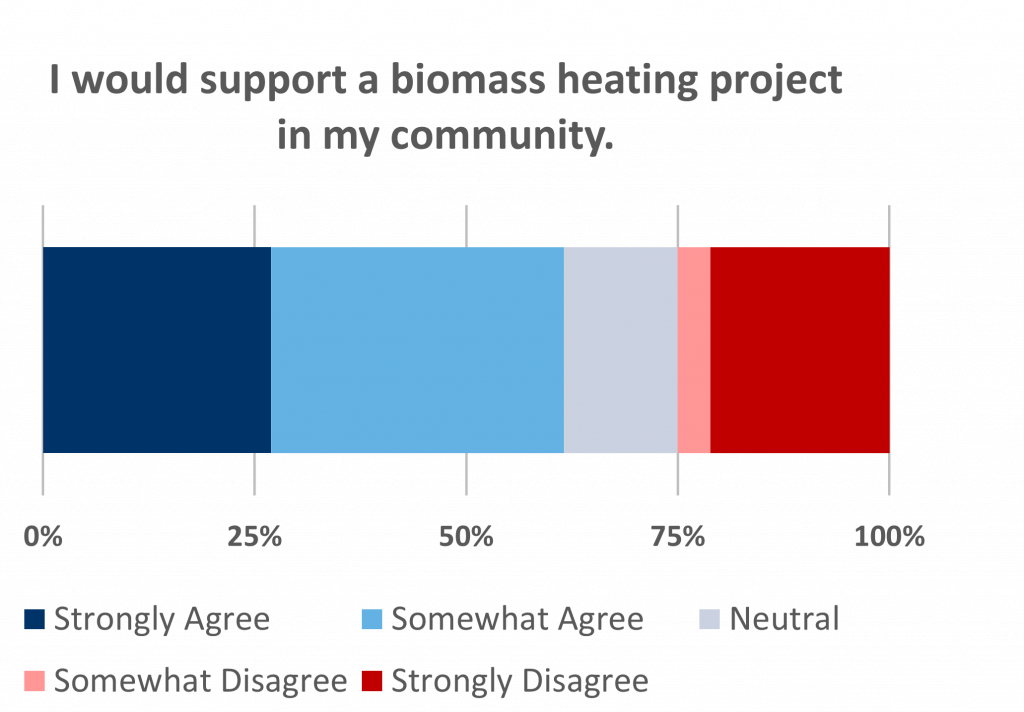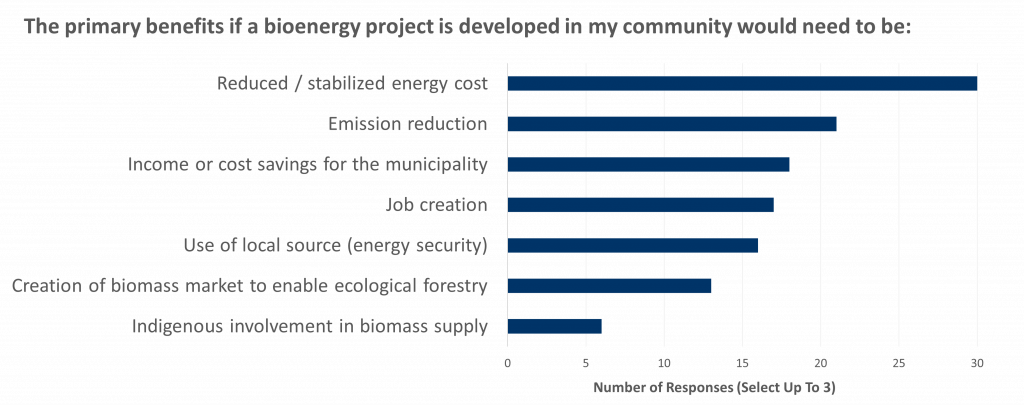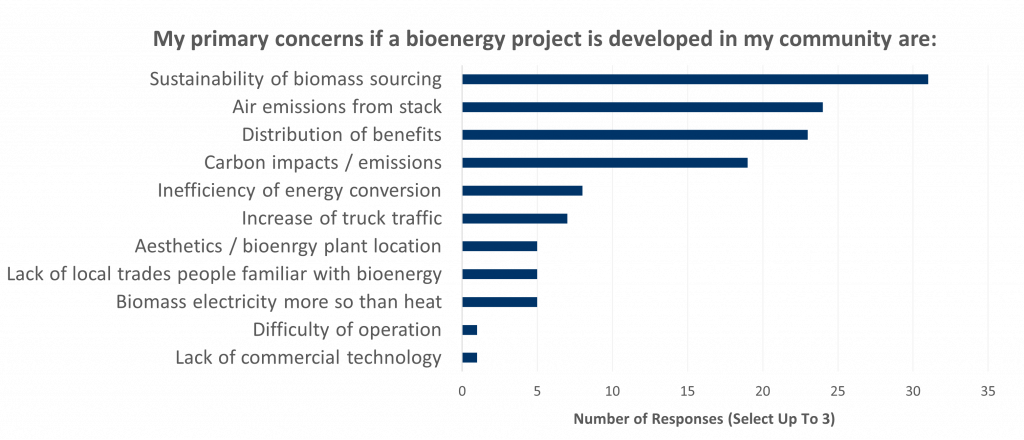Perceptions Surveys
Scroll Down for Survey REsults
About the Surveys
The online surveys were part of a research study being conducted by Dr. Jean Blair, a Postdoctoral Researcher at Dalhousie University, supported by Mitacs and TorchLight Bioresources.
The purpose of this research is to better understand:
- The perceptions of Nova Scotians around how forests are managed in the province.
- The issues impacting social acceptance of community-based biomass heating projects and how acceptance could be improved.
- The understanding of Nova Scotians of district energy systems and perceptions around the possibility of district energy for their community.
Survey Results
Surveys on perceptions of bioenergy and forest management in Nova Scotia ran from August to October 2022 and more than 200 responses were received for each from across the province but survey recruitment efforts focused on the Town of New Glasgow and surrounding area. Results are summarized below.
Modern Bioenergy Survey
Of the 204 total responses received for the bioenergy survey, 52 were residents of the Town of New Glasgow. The following summary details the survey results of respondents from New Glasgow.
65%
Of respondents somewhat or strongly agree that biomass can be a modern, clean form of renewable energy. Another 10% were neutral on this statement.

The survey suggests a high level of support for community bioenergy in New Glasgow, if done right, but also a need for more engagement.
85%
Of respondents agree that biomass sourcing must be transparent. More than half agree than use of biomass for energy can improve forest health.
The top concerns and desired benefits if a bioenergy project were developed in New Glasgow are detailed in the graphs below (click to enlarge). If development moves forward, concerns and benefits will be taken into consideration to ensure the New Glasgow DHS reflects the needs and values of the community.
Forest Management Survey
210 responses were received for the forest management survey, 69 responses from residents of Pictou County, where biomass would primarily be sourced, are summarized below.
In general, participants form Pictou County are supportive of the sustainable harvest and management of Nova Scotia’s forests, but would like to see a shift to more active forest management and a greater emphasis on forest ecology, carbon storage and recreational values.
75%
Of respondents from Pictou County at least somewhat agreed that harvesting trees can be good for a forest ecosystem.

70%
At least somewhat agree that private forest land is more likely to remain forested if it generates economic benefits
Read the full summary of survey responses here
Some comments from the surveys
“If you are looking for a social license for this type of heating, I believe it would help if a woodlot owner could tap into this market.“
“Healthy forests provide many benefits that simple preservation does not.”
“Bioenergy still enables forestry and while many companies say they plant a tree for every one taken, they plant all of the same tree, so forests that that used to be diverse are no longer.”
“[I learned] that active forest management can balance ecological and economic factors. That a local markets for lower grade trees are essential for active forest management.”
“If I was convinced that this type of forest management is actually what we would end up with I would be on board, clearcutting is cheaper and more profitable so who will stop it?”
“The provincial government should be doing more to encourage the use of wood biomass to lower emissions, provide jobs and enhance sustainable forest management.”
About the Researcher
Jean is a Mitacs Industrial Accelerate Postdoctoral Researcher at Dalhousie University, with TorchLight Bioresources as her industrial partner. She lives in the small town of Newburgh, Ontario with her husband, young son, Belgian Malinois and Siberian Forest Cat. Forests have always been an important part of her life. Growing up, free time with her family was spent in the woods or on a lake – hiking, camping, canoe tripping and cross country skiing. Now, forests are central to her academic and professional career.
Jean has spent the last decade plus learning about forests, the forest sector and all the awesome things that can be done with wood. The core theme of her work has been to understand how forests can best be managed and used to contribute to climate change goals, while also supporting the forest sector, strong communities and healthy and diverse forest ecosystems. Through this work, Jean has also developed a deep understanding of the energy sector and the intricacies of forest carbon accounting. Combined, this has led to her focus on the use of forest biomass for community-scale thermal energy as this is the lowest cost and most equitable way for communities to reduce emissions that, when done right, will also support healthy forests and a strong forest sector.
Having spent years learning, researching and writing reports, Jean has now turned her focus to developing projects that will benefit communities, industry and forests. There is an incredible opportunity for community bioenergy (done right) in Nova Scotia due to a combination of factors – lack of natural gas, high energy costs, high carbon electricity and a need/desire for improved forest management. She understands that for projects to move forward, a social license must be granted – community projects will not be developed without the enthusiastic support of communities! This research project is a first step toward understanding the concerns, priorities and uncertainties of Nova Scotians so they can be addressed as we work on moving community biomass district heating projects forward.

This project was made possible with funding
from the Government of Canada

Additional funding provided by Mitacs, through the Industrial Accelerate Postdoctoral Program. In partnership with TorchLight Bioresources (TorchLight) and the Federation of Nova Scotia Woodlot Owners (FNSWO). All partners have an interest in seeing biomass community district energy systems developed in Nova Scotia and understand that enhancing local knowledge and acceptance is critical to successful implementation. As such, these surveys and videos are designed to help project partners better understand the current state of knowledge, perceptions and concerns around the topics, as well as how concerns can be addressed.




